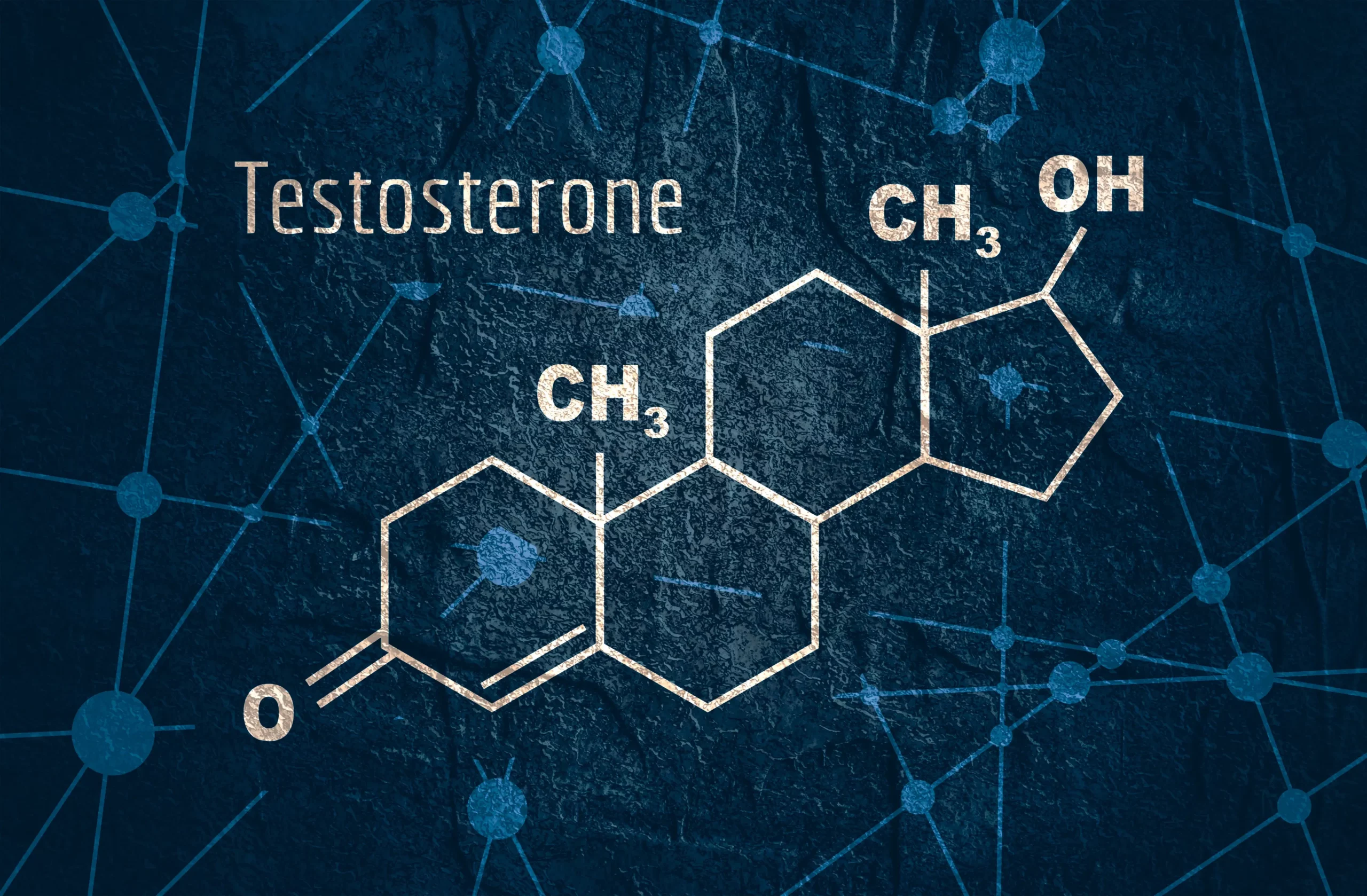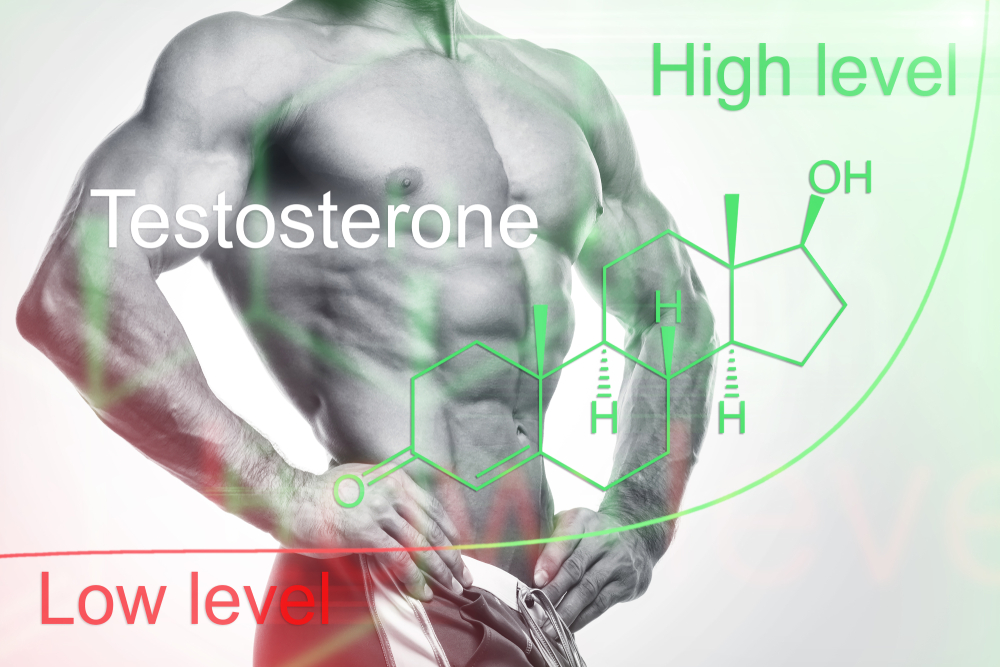In this post, we will explore 10 surprising signs of high testosterone levels in man that you need to know about.
Testosterone, the primary male sex hormone, is responsible for many functions in the body. It helps maintain muscle mass, bone density, and libido. However, having too much of it can lead to several health issues.
So, if you want to understand more about your body’s hormone levels or are experiencing any of these symptoms, keep reading!
Understanding High Testosterone in Men
Testosterone is a hormone that plays a crucial role in male physical and sexual development. High levels of testosterone can lead to various physical changes, including increased muscle mass, body hair, and deepening of the voice. However, there are other signs that may indicate high testosterone levels in men that may come as a surprise. These include increased aggression, acne, and mood swings.

Signs of High Testosterone in Man
Physical Signs
#1. Increased body hair
One of the most noticeable physical signs of high testosterone levels in men is increased body hair. This includes hair growth on the face, chest, and back. In addition to increased body hair, high testosterone levels can also lead to male pattern baldness in some men.
#2. Acne breakouts
One physical sign of high testosterone levels in men is acne breakouts. Testosterone stimulates oil production in the skin, which can lead to clogged pores and acne. Other physical signs of high testosterone include increased muscle mass, body hair growth, and a deepening voice.
#3. Enlarged breast tissue
High testosterone levels in men can cause a variety of physical changes, some of which may be surprising. One of these signs is the development of breast tissue, known as gynecomastia. This occurs when the body converts too much testosterone into estrogen, leading to the growth of breast tissue.
If you suspect that you have high testosterone levels or are experiencing any concerning physical changes, it’s important to consult with a healthcare professional for proper diagnosis and treatment. A medical professional can help determine the underlying cause of your symptoms and recommend appropriate treatment options.
#4. Deepening of the voice
High levels of testosterone in men can lead to a variety of physical changes. One of the most noticeable signs is a deepening of the voice, which can occur as a result of increased testosterone affecting the vocal cords. Other physical signs may include increased muscle mass, body hair growth, and a more defined jawline.
#5. Larger bone structure
High testosterone levels in men can manifest in a variety of physical signs and symptoms, including a larger bone structure in the shoulders and jawline. This is due to testosterone’s role in promoting bone growth and density. Other physical signs may include increased muscle mass, body hair, and a deeper voice.

Behavioral Signs
High testosterone levels in men can lead to a range of behavioral changes. Men with high testosterone levels may exhibit signs such as increased aggression, irritability, and competitiveness. They are more likely to engage in risk-taking behavior that they would have avoided otherwise.
#1. Aggressiveness
One behavioral sign of high testosterone in men is increased aggressiveness. Men with high levels of testosterone may experience irritability, a shorter temper, and an increased drive for competition. Physical signs of high testosterone can include muscle growth, increased body hair, and a deeper voice. High testosterone levels may also lead to a decreased need for sleep and an increase in sex drive.
#2. Risk-taking behavior
One surprising sign of high testosterone levels in men is risk-taking behavior. Men with elevated testosterone levels may engage in reckless driving or substance abuse, as well as exhibit aggressive behavior and difficulty controlling their temper. Additionally, high levels of testosterone can affect mood, leading to feelings of irritability or depression in some men.
#3. Competitive nature
High testosterone levels in men can lead to various behavioral changes that may be noticeable. One of the most common signs is a competitive nature, where individuals with high testosterone may strive to win at any cost. They may also become more aggressive and assertive in their behavior.
#4. Increased sex drive
One of the most well-known behavioral signs of high testosterone in men is an increased sex drive. This is because testosterone plays a key role in male sexual development and function. Other behavioral signs of high testosterone may include aggression, impulsiveness, and risk-taking behavior.
Physical signs can also indicate high testosterone levels in men. These can include increased body hair growth, muscle mass, and a deeper voice. However, it’s important to note that these physical characteristics can also be influenced by factors such as genetics and lifestyle habits.

Health Signs
#1. High blood pressure
One surprising health sign of high testosterone levels in men is high blood pressure. This can increase the risk of heart disease and stroke, making it important for men to monitor their blood pressure regularly. Other signs of high testosterone may include acne, hair loss or growth, increased muscle mass, and changes in mood or behavior.
#2. Difficulty sleeping
One surprising sign of high testosterone levels in men is difficulty sleeping. Men with high testosterone levels may experience insomnia, restless sleep, or waking up frequently throughout the night. Other signs of high testosterone include increased muscle mass, decreased body fat, and a deeper voice.
Causes of High Testosterone in Men
Testosterone is a hormone that is primarily produced in men’s testicles, and it plays a crucial role in the development of male reproductive tissues and secondary sexual characteristics, such as muscle mass, bone density, and body hair. However, in some cases, men may experience abnormally high levels of testosterone, which can cause various symptoms and health issues. Here are some common causes of high testosterone in men:
- Testosterone Replacement Therapy (TRT): TRT is a medical treatment that involves the use of synthetic testosterone to treat low testosterone levels in men. However, if the treatment is not monitored correctly, it can lead to excessively high levels of testosterone.
- Tumors: Tumors in the testicles, adrenal glands, or pituitary gland can cause the production of excessive amounts of testosterone.
- Congenital Adrenal Hyperplasia (CAH): CAH is a genetic disorder that affects the adrenal gland’s ability to produce cortisol, resulting in the overproduction of testosterone.
- Polycystic Ovary Syndrome (PCOS): PCOS is a hormonal disorder that affects women, but it can also cause high testosterone levels in men. PCOS can lead to the development of ovarian cysts, insulin resistance, and elevated levels of androgens.
- Obesity: Obese men may have high testosterone levels due to an increase in the conversion of androgens to estrogen by the body’s fat cells.
- Medications: Certain medications, such as anabolic steroids, can cause high testosterone levels in men.
If you suspect that you have high testosterone levels, it is essential to consult a healthcare professional who can perform a blood test to diagnose the condition and recommend appropriate treatment.

Frequently Asked Questions
- What happens if a man has high testosterone?
High testosterone levels in men can result in increased muscle mass and strength, as well as a higher sex drive and aggression. However, it can also lead to unwanted effects such as hair loss or acne.
If you suspect you have high testosterone levels, it is important to consult a healthcare professional for proper diagnosis and treatment.
- Is high testosterone good for males?
High testosterone levels can have both positive and negative effects on males. Some benefits include increased muscle mass, improved bone density, and better sex drive. However, high levels can also lead to aggression, acne, and hair loss.
It is important to maintain a healthy balance of testosterone in the body for optimal health. If you suspect your testosterone levels may be out of balance, it is recommended that you speak with a healthcare professional for guidance on how to manage your hormone levels safely and effectively.
- What age is testosterone high?
Testosterone levels in men are at their highest during adolescence and early adulthood. However, testosterone naturally declines with age, usually starting around age 30. While high testosterone levels in older men can be a sign of underlying health conditions such as cancer or hormonal disorders, it is important to talk to a healthcare provider if you are experiencing symptoms of high testosterone. They can help determine the cause and develop an appropriate treatment plan.
Let’s Sum Up
High testosterone levels can be a cause for concern, as they can lead to both physical and behavioral changes. Some of the most common signs of high testosterone in men include increased body hair, acne breakouts, and larger bone structure. Behavioral changes such as aggressiveness, risk-taking behavior, and an increased sex drive may also be indicative of high testosterone levels. In terms of health concerns, high blood pressure and difficulty sleeping are among the most common symptoms.
If you suspect that you may have high testosterone levels, it’s important to speak with your doctor to determine the underlying cause and appropriate treatment options.




